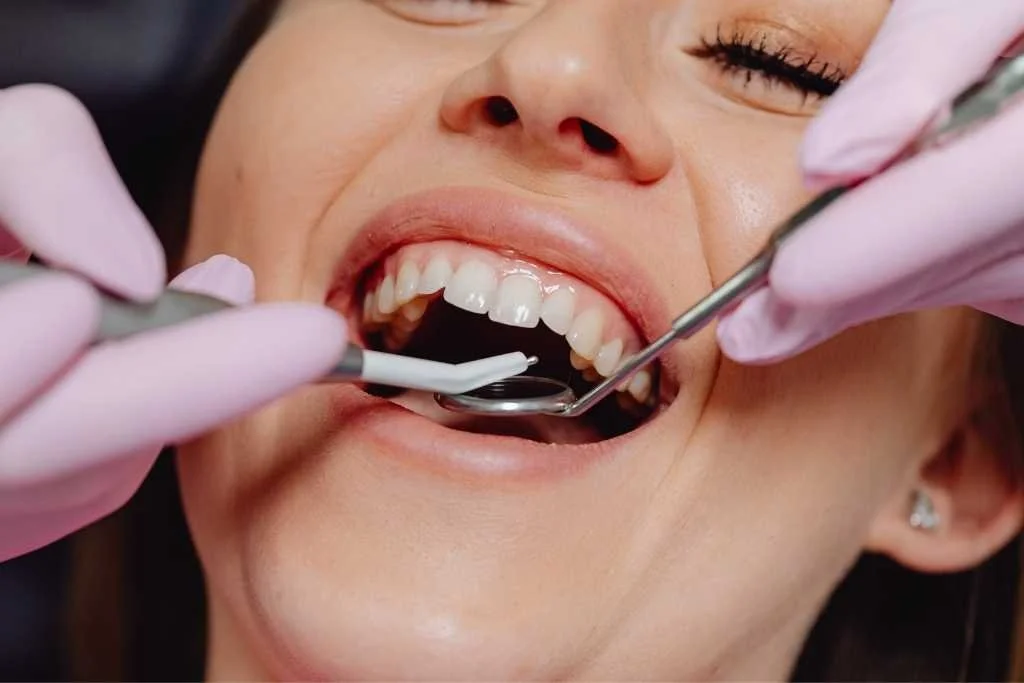Can Natural Teeth Be Saved Instead of Getting Implants?
What This Blog Post Will Cover
In this article, you’ll learn:
—Why natural teeth often perform better than implants
—How bone and gum structure affect long-term outcomes
—What studies reveal about implant failure rates
—How periodontal treatment can help save teeth once considered hopeless
—When dental implants are the right choice
Why Natural Teeth Often Outperform Implants
Stronger Bone Attachment
Natural teeth are connected to the bone by the periodontal ligament (PDL), a living structure that acts as a shock absorber and distributes bite forces.
Implants, in contrast, are rigidly fused to bone without a ligament. This lack of flexibility can make implants more prone to bone loss and mechanical stress - especially under off-angle chewing forces.
Perio-Implant Advisory: Anatomical Differences Between Teeth and Implants
2. Better Protection Against Plaque and Inflammation
Fibers surrounding natural teeth insert perpendicularly into the tooth surface, creating a tight biological seal that blocks bacteria.
Implants, on the other hand, have fibers that run parallel and do not attach as firmly, allowing bacteria to travel deeper and cause peri-implantitis - a form of bone-destroying infection unique to implants.
3. More Favorable Healing Response
Natural teeth have a rich blood supply, which helps regenerate both bone and soft tissue after treatment.
Implants, by contrast, have reduced vascularity around their surface, which can result in slower and less predictable healing.
Implant Failure Rates vs. Natural Teeth
A 10-year longitudinal study published in Perio-Implant Advisory found that dental implants failed at a rate ten times higher than natural teeth in patients with treated chronic periodontitis.
While natural teeth were lost at a rate of 0.07 teeth per patient per year, implants failed at 0.4 implants per patient per year - even with identical maintenance and hygiene programs.
Over time, natural teeth tended to improve in prognosis, while implants often experienced increased bone loss and probing depths between years six and ten.
This means that even compromised teeth, when treated periodontally, can often outlive implants - especially in patients with a history of gum disease.
How Periodontal Treatment Can Save Your Teeth
Dental implants are an excellent solution for missing teeth, but they should not replace teeth that can still be restored. If a tooth has a viable prognosis, regenerative and periodontal therapy should always be considered first.
At the office of Dr. Scott Froum, DDS, we routinely save teeth once thought “hopeless” through advanced periodontal techniques such as:
Bone grafting to rebuild lost jawbone and stabilize teeth
Tissue grafting to restore gum coverage and create a seal against bacteria
Growth factors (like PRF or Exosomes) to stimulate healing and new bone formation
When these treatments are applied early, the long-term prognosis for the natural tooth often exceeds that of a dental implant.
Dental Implants: Pros and Cons
Pros
Replace missing teeth permanently
Prevent bone resorption at extraction sites
Offer excellent aesthetics when properly placed
Cons
Higher risk of infection (peri-implantitis)
Weaker attachment to bone than natural teeth
No shock-absorbing ligament
Higher failure rates in patients with gum disease history
In short, implants are ideal for replacing missing teeth - but not ideal substitutes for teeth that can still be saved.
Key Takeaways
Natural teeth, when treated correctly, are often more durable and biologically compatible than implants.
Implant failure rates are significantly higher in patients with a history of gum disease.
Regenerative treatments such as bone grafting, gum grafting, and growth factors can rescue teeth once deemed unsalvageable.
Dental implants remain an excellent choice for teeth that truly cannot be restored, but should not replace saveable teeth.
Considering Dental Implants?
If you’ve been told you need a dental implant, it’s worth getting a second opinion. Many natural teeth can be saved with today’s advanced bone and tissue regeneration techniques.
Schedule a consultation with Dr. Scott Froum, DDS, a board-certified periodontist in Midtown Manhattan, to learn whether your natural teeth can be preserved before choosing implants.
Frequently Asked Questions About Periodontists
-
Not biologically. Natural teeth have a ligament that absorbs shock and adapts to stress, while implants transmit force directly to the bone.
-
Yes. Bone and gum grafting—especially when enhanced with growth factors—can rebuild lost support and stabilize teeth that were previously mobile.
-
The same bacteria that cause periodontitis can infect implants, leading to peri-implantitis. A history of gum disease increases that risk.
-
Absolutely. Once a tooth is non-restorable, implants are an excellent replacement option—provided proper maintenance is followed.
-
No. Implants require professional cleanings, X-rays, and daily hygiene just like natural teeth to prevent infection and bone loss.
About Dr. Scott Froum
Dr. Scott H. Froum is a board-certified periodontist in Midtown Manhattan. He helps patients with gum disease treatment, scaling and root planing, periodontal regeneration, dental implants, and surgical procedures for implant complications.
Dr. Froum is a professor at SUNY Stony Brook Dental School and the chief editor of Perio-Implant Advisory. He has many years of experience saving natural teeth, improving dental health, and supporting patients with advanced treatment planning.
If you are looking for a periodontist in NYC to help you explore the best options for your teeth and gums, Dr. Froum offers expert, patient-centered care. Contact the office today.
Contact Us
Address
1110 2nd Ave Ste 305
New York, NY 10022
Phone
Tel: 212-751-8530
Fax: 212-751-8544
scottfroumdds@gmail.com
Hours
Monday | 9am - 5pm
Tuesday | 9am - 5pm
Wednesday | 9am - 5pm
Thursday | 9am - 5pm
Friday | 9am - 5pm
Saturday | Closed
Sunday | Closed





